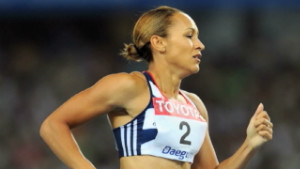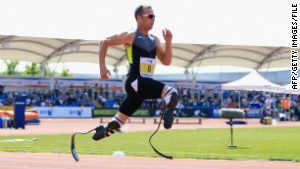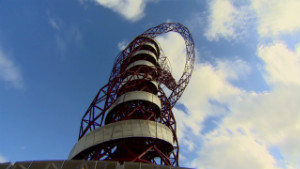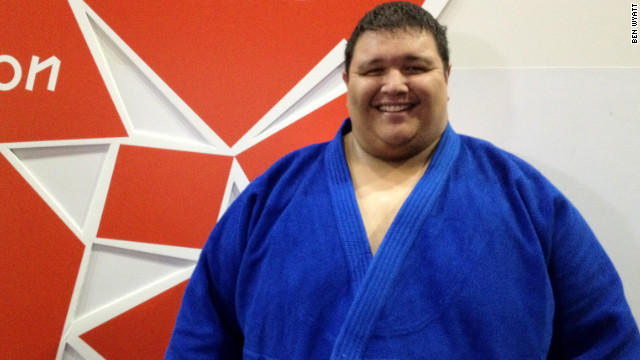The Underdogs: The true heroes of the Olympic Games
August 4, 2012 -- Updated 1421 GMT (2221 HKT)
STORY HIGHLIGHTS
- Gold medals and glory is only the tip of the true Olympic story
- It's not just the Olympic Flame that burns eternally, but the hope in the hearts underdogs too
- Ricardo Blas Jr became the first athlete from Guam to progress to an Olympic second round
- Ronald Forbes and Kemur Hyman are bidding to win first medal for the Cayman Islands
But this is only the tip of the true Olympic story.
Over two hundred nations
have taken part in the modern Olympic Games since 1896, and of them 79
are yet to win a single medal. Most athletes who have traveled thousands
of miles across the world to London, and devoted years of their lives
to train in a discipline of their passion, are outside bets to win a
medal at best.
And many, from the
nations who have yet to claim a podium place, are looking to overturn a
seemingly one-way current of history that keeps them -- or anyone else
from their homeland -- from clutching a sacred circle of gold, silver or
bronze.
 Human to Hero: Jessica Ennis
Human to Hero: Jessica Ennis
 Oscar Pistorius' fighting spirit
Oscar Pistorius' fighting spirit
 Linford Christie's Olympic picks
Linford Christie's Olympic picks
But it's not just the Olympic Flame that burns eternally, the hope in the hearts of "the underdogs" burns too.
Underdogs like Ricardo
Blas Jr, a 218 kg judokan from the small Pacific island-nation of Guam.
To remark purely on the 25-year-old's size would be a glib oversight of
the Olympian he is.
Inspired by the judo
exploits of his father, Ricardo Blas, who became Guam's first Olympian
in 1988, Blas Jr has been a judo player since the age of five. He
"trains hard, four-to-six hours every day" and studied at a judo college
in Japan before qualifying for Beijing and then London.
"In all bar two Olympics
since 1988, we've always had a representative from Guam in the judo, and
they've usually been from my family: my Dad, my first cousins and now I
hope to keep that going," he told CNN.
"I was on the judo mat
before I could walk, I've never known anything else. I got into it and
then it's like 'if you're going to do something then take it all the
way', and here I am at the Olympic Games."
No hubris, no hyperbole just honest joy at living his dream.
In all bar two Olympics since 1988, we've always had a
representative from Guam in the judo, and they've usually been from my
family
Ricardo Blas Jr
Ricardo Blas Jr
Blas Jr. is one of eight
athletes who qualified from a nation that barely covers 200 square
miles and has a population of just 180, 000 (figures from the United
Nations). And London will live long in the memory because, unlike in
Beijing -- where Blas Jr lost in two visits to the mat and exited the
tournament -- here, he won his first round bout against Facinet Keita of
Guinea.
It's the first time any
judo player from Guam has progressed to the second round of an Olympic
event. Ricardo Blas Jr has made history.
"It was a win, at the
Olympic Games of all places! It was an amazing feeling and it was the
first for Guam as well. I'm happy about that," he told CNN just after
this victory.
Sadly, for his
compatriots, the winning streak was short-lived, as defeat followed in
the second round to Cuba's Oscar Brayson. It all happened within the
space of 45 minutes, but created memories that will no doubt last a
lifetime.
"A loss is always bad
but I have no regrets because I fought my hardest, I left it all on the
mat, so I feel ok. I always wish I could have done better and gone
further, but that's now my prep for the future.
I was on the judo mat before I could walk, I've never known
anything else. I got into it and then it's like 'if you're going to do
something then take it all the way'
Ricardo Blas Jr
Ricardo Blas Jr
"It's gratifying because
it shows I've grown since Beijing so maybe I'll continue to grow and
get on that podium sometime. My dream will always be an Olympic medal,
and if I win one it will show everyone in Guam they can do it."
Away from the judo hall
that sits on the banks of London's docklands, in the more comfortable
surroundings of the Athletes' Village two sprinters from the Cayman
Islands are contemplating the challenge that lies ahead.
The Caribbean country of
their birth is 164 square miles in size with a population of just over
56,000; a figure that means the entire nation could fit into the Olympic
Stadium in London with nearly a third of the arena left empty. It's
fair to say their community is tight.
"It's one of those
places where everyone knows everyone. Many people think we live in
paradise, and it is pleasant, but I like how multicultural the place is
too. I wouldn't change it for the world," Ronald Forbes told CNN.
Forbes, 27, is a 110m
hurdler and one of seven athletes to have made the trip to the British
capital from Cayman. His childhood friend and teammate is Kemur Hyman, a
100m sprinter who aged 22, and just a few weeks before the 2012
Olympics, became the first Cayman Island runner to complete his distance
in under 10 seconds.
I get bubble guts and nervous but I've done all the work to get here, I just need to finish it off
Kemur Hyman, Cayman Islands 100m sprinter
Kemur Hyman, Cayman Islands 100m sprinter
"I was picked up at 13
by the national coach after running in an inter-school competition. And
then I got serious at 15 because my brother made me jealous traveling to
Bermuda to compete, so it all went from there really," he told CNN.
Both sprinters are now
studying in America due to the their athletic talents but remain fixed
on their nation's goal ahead of their competitions in London: to win an
elusive medal.
"I feel like we're going
through a spell, our country is small but we now have five athletes of
the A standard so I think there are medals coming, I'm confident here or
2016 it will happen," Hyman said.
By the time you read
this Hyman will be trying his best to qualify for the men's 100m,
arguably the most pressurized, high-intensity running race in the world.
With the likes of Usain Bolt, Yohan Blake, Tyson Gay et al all vying
for places too, he will be up against it. But despite the odds, and the
size of the stage, Hyman remains upbeat.
"I get bubble guts and
nervous but I've done all the work to get here, I just need to finish it
off. My time has come down from 10.7 to 9.9, so I want to put my island
on the map (by continuing this)."
Forbes' first race comes
on Tuesday 7, after the Bolt-Blake fireworks of the weekend have
settled. "It's simple, keep away from the distractions and get from
point A to point B as quick as possible, that's it, period, that's what I
learned in Beijing."
Both Forbes and Hyman
plan to practice what they preach and bring home a medal at some point
during their careers, but even without such tangible tokens of success
surely Blas Jr, and the Cayman Island challengers represent what the
Games is all about: the challenge of taking part.
Baron Pierre de Coubertin can rest easy that his legacy is alive and well ...

 Over two hundred nations have
taken part in the modern Olympic Games since 1896, and of them 79 are
yet to win a single medal. Guam, a small island in the Pacific Ocean
that barely covers 200 square miles, is one such country. From their
population of 180, 000, judokan Ricardo Blas Jr. qualified along with
seven others to compete at the London Olympics.
Over two hundred nations have
taken part in the modern Olympic Games since 1896, and of them 79 are
yet to win a single medal. Guam, a small island in the Pacific Ocean
that barely covers 200 square miles, is one such country. From their
population of 180, 000, judokan Ricardo Blas Jr. qualified along with
seven others to compete at the London Olympics.
ไม่มีความคิดเห็น:
แสดงความคิดเห็น